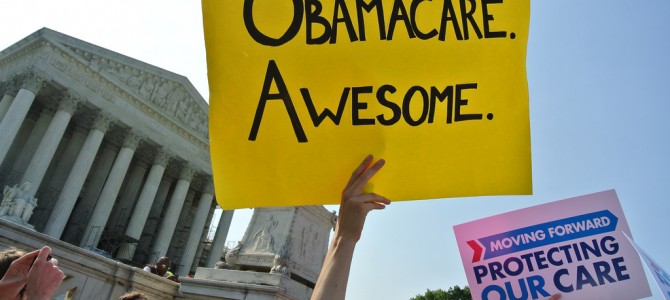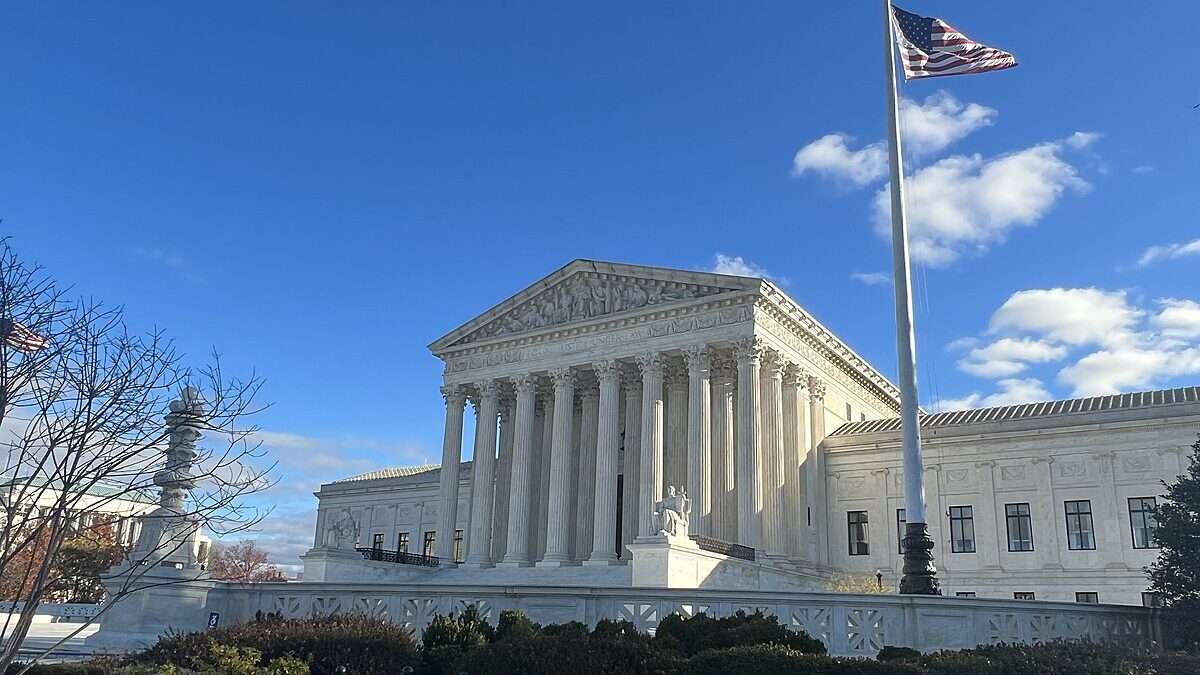It’s time to add another item to the list of discarded liberal pieties: judicial review.
The Supreme Court is no longer here to hold the executive branch accountable to the Constitution or the letter of the law. It’s here to run interference for the executive, to help it rewrite the law to fit its needs. And yesterday’s ruling in King v. Burwell doesn’t really make any bones about that. What the majority decision says is that in order to fit the larger context of the legislation’s overall goals, they had to interpret the language in a way other than the “most natural sense”—and “natural” here is a weaselly term for “the plain, obvious meaning of the words.”
What’s the larger context to which the meaning of words has been sacrificed?
ObamaCare raises health insurance rates. All of the mandates it imposes, all the requirements it sets for what and who the insurance must cover, and above all the fact that the law creates a pool of older and sicker people who have to be covered—all of this drives up health insurance rates. It makes health insurance less affordable, then tries to require people to buy it. It’s achieves the opposite of its supposed goal of “affordable care.”
So to make this boondoggle work, the government has to subsidize the insurance, to make its cost to lower-income buyers far less than the amount required by the insurer to remain solvent, and to have the taxpayers cover the difference.
The problem is that the law as written specifically banned subsidies for insurance bought outside the state-run insurance exchanges. This was supposed to be an incentive for the states to establish these exchanges: if you don’t set one up, you don’t get the subsidies. And this was clear and obvious and ironclad. We had Jonathan Gruber, an academic who helped write the law, traveling around the country telling people that this was how it was supposed to work. But the Supreme Court set out to reinterpret it.
So what this means is that the Supreme Court wanted to save a piece of legislation that was big and important for this administration, and to do that, they rewrote the law to keep it from crashing. And this isn’t the first time. They also rewrote the part about the individual mandate, redefining it as a tax even though it specifically wasn’t a tax when the law was passed. Hence Scalia’s devastating comment in his dissent where he says we should call the law SCOTUScare now. For those who live happily outside the Beltway, SCOTUS is the acronym for the Supreme Court of the United States. So his idea is that the Supreme Court has rewritten this law so many times that they now own it.
What all of this implies is that the law no longer has any meaning. Any law, from the Constitution on down, can mean whatever it needs to mean at any given moment to serve the political needs of the administration, of the executive branch.
So much for the idea that the job of the Supreme Court is to push back against the other branches and invalidate decisions by the executive branch, or strike down laws when the other branches overreach and violate either the Constitution or other laws. And from very early on, from Marbury vs. Madison in 1803, the Supreme Court insisted on this prerogative of serving as a check on the other branches.
And now that is what’s being thrown out. The Supreme Court is now here to be a partisan rubber stamp.
The only thing we need now, and I’m expecting it, is a Supreme Court ruling insisting on a national, constitutional right to gay marriage. Suddenly they will rediscover judicial review and the ability of the courts to overrule both legislatures and the popular referendums. My point here is not about whether gay marriage ought to be a right or whether it’s a constitutional right (though that seems a big stretch, because marriage is an issue that has traditionally been left to the states). The point is that there’s no coherent way to do both, to say that the Court can check or overrule other branches on gay marriage but not on health care laws. The only thing that makes them go one way on one issue and the other way on the other issue is a partisan political imperative.
And that’s where we are now. That’s what the Supreme Court has become, just another institution to be grabbed hold of by political partisans.
Follow Robert on Twitter.









